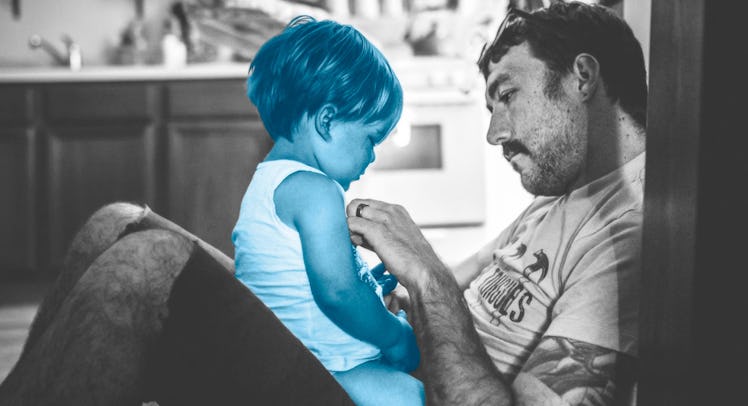When Does Disciplining a Child Start to Work?
Before they can walk, or even crawl, babies can grasp the basics of discipline.

Parents often see discipline as something to be considered for school-age children. After all, why would they correct a kid who can’t even walk? Why would a tiny human who spends much of the time staring at lights and drooling need such guidance? The short answer: Because discipline is about teaching boundaries, and babies especially need help setting these.
If left to their own devices, babies and toddlers would allow their curiosity to get them into any number of jams. They could be seriously hurt without proper guidance. That guidance “starts very early as a simply ‘yes’ or ‘no’,” says Dr. Michele Borba, author of No More Misbehavin’: 38 Difficult Behaviors and How to Stop Them.
MORE: What is the Difference, Exactly, Between Crime and Punishment?
It really is that simple. Dr. Borba recalls being called in to help a mother of multiples, all of whom were babies, and all whom were biting. “You walked in there worried about getting tetanus,” she recalls. The problem, she soon discovered was not with the babies but with a mother reticent to say no.
“One of them bit his brother and I said ‘no,’ picked him up and moved him away,” says Borba. She remembers that this made the baby cry, which then made the mother cry, as if her child feeling bad was worse than a bite. But Borba is firm on confronting kids. “Bad behavior escalates. What you want to do is nip it in the bud,” she says. “It doesn’t derail a child’s self esteem to show them a boundary.”
RELATED: 11 Long-Term Benefits of Disciplining Your Kids
The earliest discipline is a matter of stopping the behavior, even through distraction, and replacing the behavior with something else. It does not need to be a long drawn out discussion.
Borba offers another example of correcting a baby who is pulling an animal’s fur. “it’s ten seconds,” she says, “You say: ‘No. Hurts doggie. We pat.’ And then you praise the heck out of the kid when they do it right because kids want to please us.”
This very basic exchange does everything discipline is supposed to — enforcing boundaries, explaining why, and offering a replacement behavior. It evens gives baby an opportunity to build perspective taking by recognizing hair pulling hurts a pet. They won’t understand that fully until their cognitive abilities catch up, but it helps lay the groundwork for empathy.
Of course, Borba says that for their own sake, parents need to pick their battles. “You don’t have to pick out every behavior,” she says. “Just pick out the repeat occurrences that are going to get in the way of your kids reputation, their safety and the respect of you in your family, and you target that.”
Read more of Fatherly’s stories on discipline, punishment, and behavior.
This article was originally published on